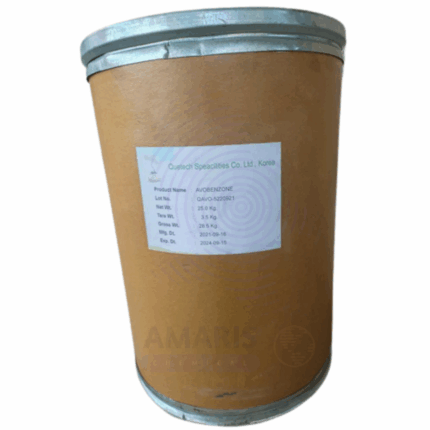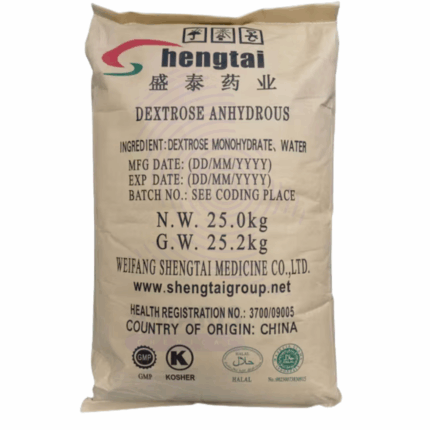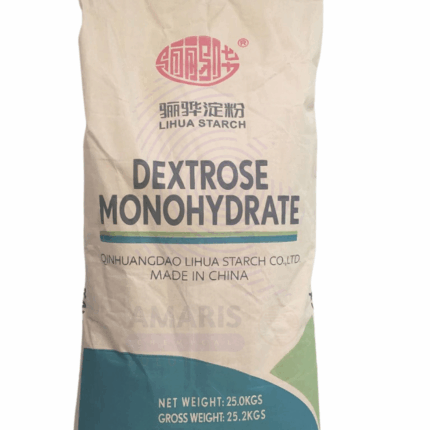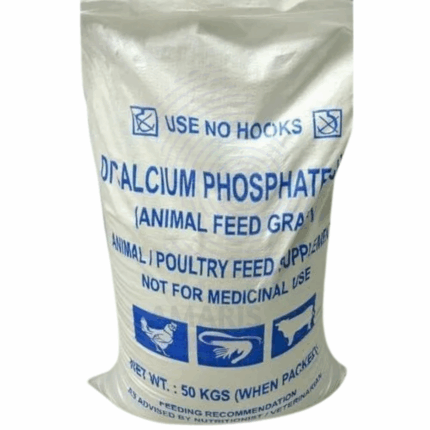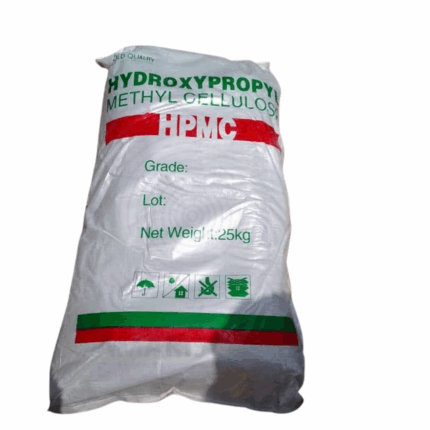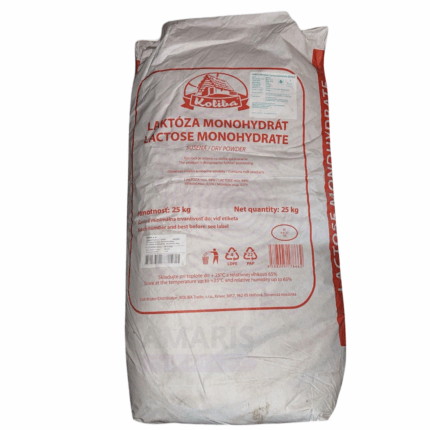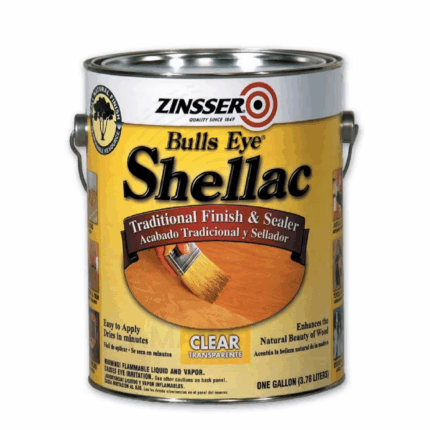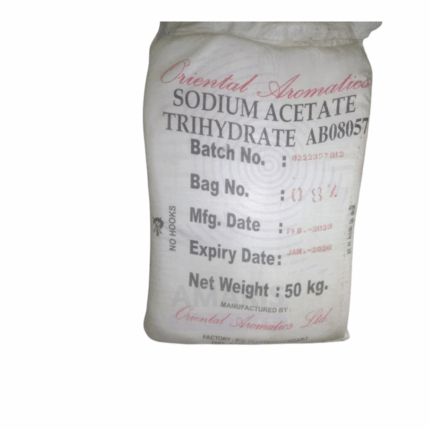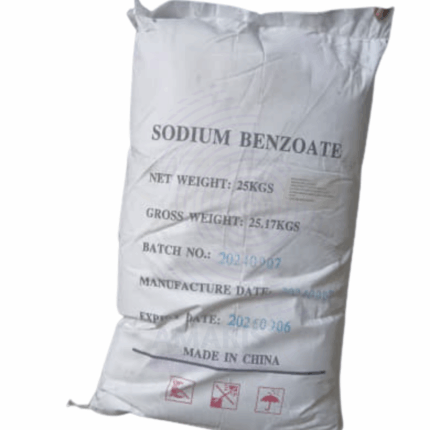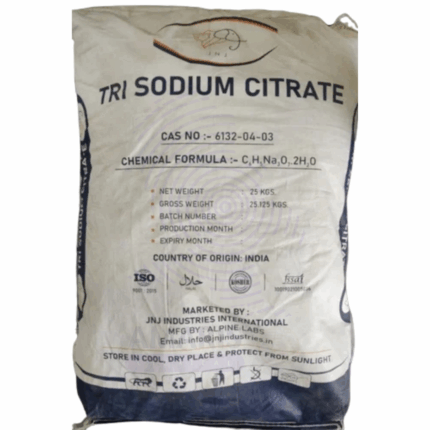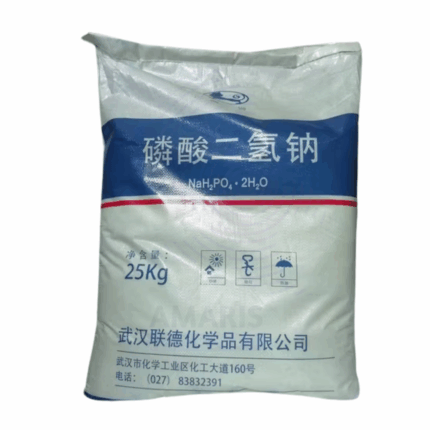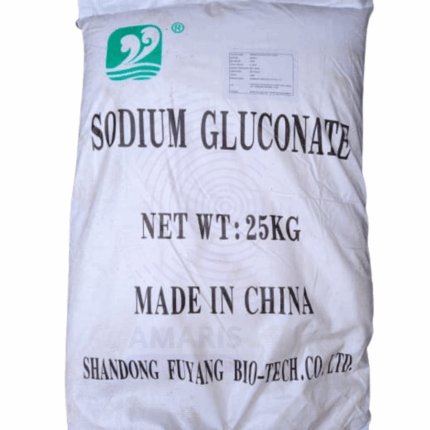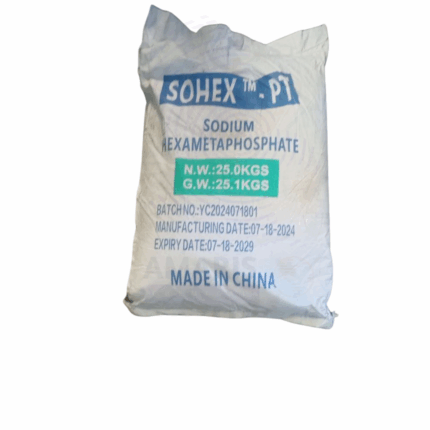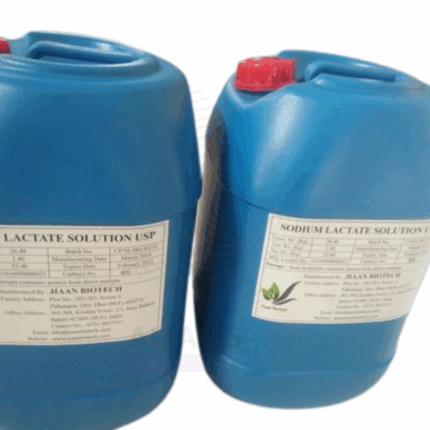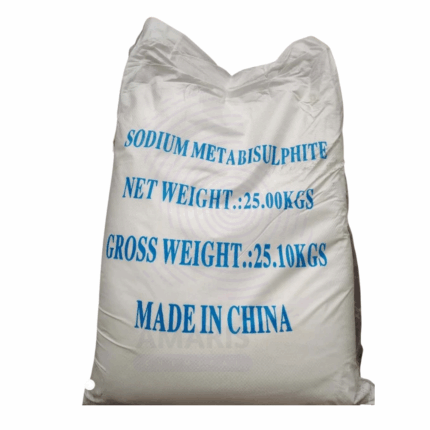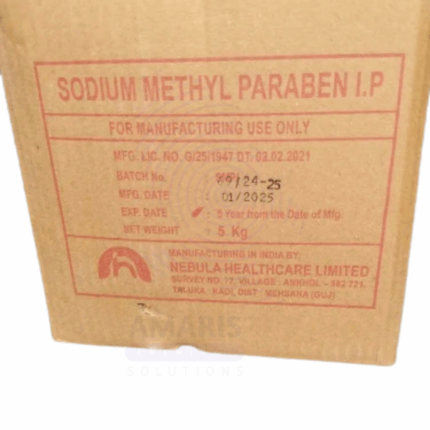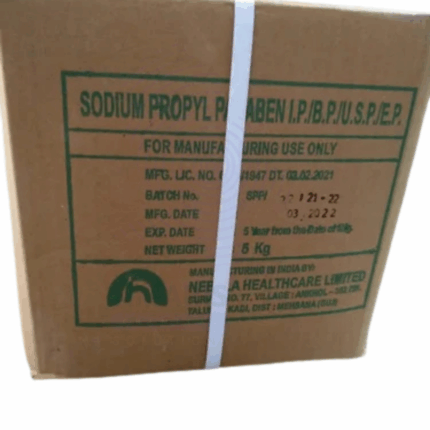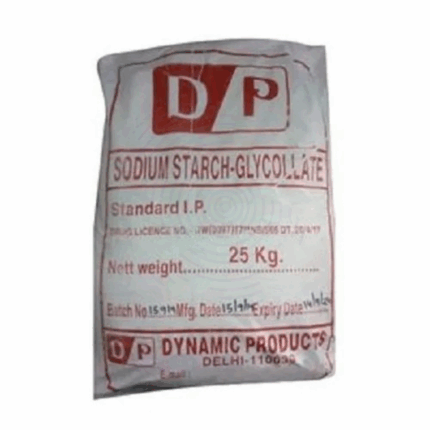
Ammonia Acetate
Ammonium Acetate (NH4CH3COO) is a white crystalline solid or granular powder with a mild ammoniacal odor. It is a salt formed from ammonia and acetic acid, widely used in laboratories, industrial processes, and some niche food and pharmaceutical applications. Ammonium Acetate is highly soluble in water and often utilized as a buffer solution in biochemical and analytical chemistry due to its ability to maintain pH. It also serves as a precursor in the synthesis of various chemicals and acts as a neutralizing agent in several industrial applications.
Aspartame FCC IV 100 Mesh
Aspartame FCC IV 100 Mesh is a high-purity, fine crystalline powder form of aspartame, meeting Food Chemicals Codex (FCC) grade IV specifications, and ground to a 100 mesh particle size. This fine particle size improves its solubility and dispersibility in beverages and other formulations. Aspartame is an intense artificial sweetener approximately 200 times sweeter than sucrose. It is widely used as a low-calorie sugar substitute in various food, beverage, pharmaceutical, and personal care products. This form is preferred for applications requiring rapid dissolution and uniform sweetness.
Avobenzone
Avobenzone (chemical name: Butyl Methoxydibenzoylmethane) is an oil-soluble organic compound widely used as a UVA filter in sunscreen formulations. It is valued for its ability to absorb a broad spectrum of ultraviolet A (UVA) rays (320–400 nm), protecting the skin from premature aging and damage caused by sun exposure. Avobenzone is often combined with other UV filters to provide broad-spectrum sun protection. It is a pale yellow liquid or crystalline powder, soluble in oils and alcohols but unstable in sunlight unless stabilized with other agents.
Cellulose Acetate Phthalate (CAP)
Cellulose Acetate Phthalate (CAP) is a cellulose derivative obtained by esterification of cellulose with acetic acid and phthalic anhydride. It appears as a white to off-white, free-flowing powder that is insoluble in water but soluble in alkaline solutions and certain organic solvents. CAP is primarily used as an enteric coating agent in pharmaceutical formulations, providing resistance to acidic gastric fluids and enabling targeted release of drugs in the intestines. Due to its film-forming, pH-sensitive solubility, and protective properties, CAP is also applied in food, cosmetics, and specialty industrial uses.
Cetyl Alcohol Flakes
Cetyl Alcohol Flakes is a high-purity fatty alcohol derived mainly from natural sources such as palm oil and coconut oil. Presented as white to off-white waxy flakes, this product contains at least 98% pure cetyl alcohol, ensuring consistent performance and quality. It is valued for its excellent emollient, thickening, and emulsifying properties and is widely used in personal care, pharmaceutical, and industrial formulations. The flake form facilitates easy handling, melting, and dosing in manufacturing processes. Cetyl Alcohol 98% Flakes contributes to the texture, stability, and moisturizing properties of various formulations, providing a non-greasy, smooth finish.
Dextrose Anhydrous BP Injectable
Dextrose Anhydrous BP Injectable is a sterile, highly purified crystalline form of glucose that serves as a critical energy source in intravenous therapy. It is widely used in parenteral nutrition, rehydration, and hypoglycemia management. The anhydrous form contains no water, allowing precise control of concentration in injectable solutions. Meeting British Pharmacopoeia (BP) standards, it ensures pharmaceutical-grade purity and sterility, suitable for direct injection or as a component in compounded IV fluids. It provides readily available carbohydrates metabolized to supply energy, regulate osmolarity, and maintain fluid-electrolyte balance in clinical care.
Dextrose Monohydrate
Dextrose Monohydrate is a crystalline form of glucose containing one molecule of water (monohydrate). It is a primary carbohydrate source widely used in pharmaceutical, food, and clinical nutrition applications. It provides readily available energy, serves as a sweetening agent, and acts as an osmotic agent in formulations. Dextrose Monohydrate meets pharmacopoeial standards (such as BP, USP) ensuring high purity, consistency, and safety for use in medical and food-grade products. Its solubility and stable crystalline form make it suitable for intravenous fluids, oral rehydration solutions, and food industry applications.
Dicalcium Phosphate
Dicalcium Phosphate (DCP) is an inorganic compound commonly used as a dietary supplement, food additive, and a key raw material in pharmaceuticals and animal nutrition. It appears as a white crystalline powder or granules and provides a highly bioavailable source of calcium and phosphorus, essential minerals for bone health, metabolic functions, and overall growth. DCP is widely used in the feed industry, pharmaceutical manufacturing, food processing, and various industrial applications, appreciated for its purity, stability, and nutritional value.
Dicalcium Phosphate Dihydrate
Dicalcium Phosphate Dihydrate (DCP Dihydrate) is an odorless, white crystalline powder or granule composed of calcium and phosphate in a hydrated form. It is widely used in the pharmaceutical, food, animal feed, and industrial sectors. It serves as a calcium and phosphorus supplement, excipient, and abrasive agent, valued for its stability, bioavailability, and neutral taste. DCP Dihydrate complies with various pharmacopeial standards (e.g., USP, BP, FCC) depending on the grade.
Dill Seed Oil Terpeneless
Dill Seed Oil Terpeneless is a refined essential oil obtained by steam distillation of the seeds of Anethum graveolens, with terpenes removed to reduce its sharpness and volatility. It has a mild, sweet, herbaceous aroma with faint spicy undertones. This oil is prized for its improved stability, softer fragrance profile, and enhanced suitability in cosmetic, pharmaceutical, and cleaning applications. Traditionally used for digestive support and antimicrobial properties, dill seed oil terpeneless is incorporated in natural personal care products, aromatherapy, and household formulations.
Ethylvanillin
Ethylvanillin (3-Ethoxy-4-hydroxybenzaldehyde) is a synthetic aromatic aldehyde widely used as a flavoring agent and fragrance ingredient. It is a white to pale yellow crystalline powder with a strong, sweet vanilla-like odor, but more intense than natural vanillin. Ethylvanillin offers excellent flavor stability, solubility in alcohol and oils, and is valued for its enhanced vanilla aroma in food, beverage, cosmetics, and pharmaceutical formulations. Due to its potent scent and flavor profile, it is a preferred substitute or complement to natural vanilla extract.
Glycerin USP
Glycerin USP, also known as glycerol, is a high-purity, pharmaceutical-grade trihydroxy alcohol (triol) used extensively in pharmaceutical, cosmetic, food, and personal care industries. Supplied in 250kg HDPE drums, this grade complies with the standards of the United States Pharmacopeia (USP), ensuring suitability for internal and topical human use. It is a clear, colorless, odorless, viscous liquid with a sweet taste and hygroscopic (moisture-attracting) properties. USP glycerin is derived from natural or synthetic sources and serves as a solvent, humectant, emollient, sweetener, and preservative in various applications.
Hydroxypropyl Methylcellulose
Hydroxypropyl Methylcellulose HPMC, also known as hypromellose, is a semi-synthetic, non-ionic cellulose ether derived by chemically modifying cellulose through methylation and hydroxypropylation. It is a white to off-white, odorless, tasteless powder that dissolves in cold water to form clear, viscous solutions. HPMC is renowned for its thickening, film-forming, emulsifying, and controlled-release properties. It is widely used in pharmaceuticals, food, cosmetics, construction, and industrial applications due to its safety profile, versatility, and compatibility with various ingredients.
Lactose Monohydrate 200 Mesh
Lactose Monohydrate 200 Mesh is a fine, white, crystalline powder derived from milk sugar with a particle size of 200 mesh, indicating very fine granules. It is widely used in pharmaceutical, food, and confectionery industries as a filler, binder, and stabilizer. Lactose Monohydrate is valued for its excellent compressibility, low hygroscopicity, and compatibility with many active pharmaceutical ingredients (APIs). The monohydrate form contains one molecule of water, enhancing its stability and flow properties.
Methyl Cellulose 400mpc
Methyl Cellulose 400mpc is a chemically modified cellulose derivative in powder form. It is a non-ionic, water-soluble polymer widely used as a thickener, binder, emulsifier, and film former. It exhibits excellent water retention, viscosity control, and thermal gelation properties, making it ideal for applications in construction, pharmaceuticals, food, and cosmetics.
Polyethylene Glycol
Polyethylene Glycol 6000 (PEG 6000) is a high-molecular-weight polymer derived from ethylene oxide. It appears as a white, waxy solid or flake and is non-toxic, water-soluble, and chemically stable. PEG 6000 is widely used in pharmaceuticals, cosmetics, food processing, industrial formulations, and biotechnology, valued for its lubricating, solubilizing, binding, and moisturizing properties. It is odorless and tasteless, making it suitable for sensitive formulations.
Pullulan
Pullulan is a natural polysaccharide polymer produced by the fermentation of starch by the fungus Aureobasidium pullulans. It is a water-soluble, tasteless, and odorless biopolymer widely used in the food, pharmaceutical, and cosmetic industries due to its excellent film-forming, adhesive, and oxygen barrier properties. Pullulan is biodegradable, non-toxic, and approved for use in various applications requiring edible and biodegradable films.
Resistance coil
Resistance Oil is a specialized essential oil blend formulated to enhance the body’s natural resilience and vitality. Derived from a carefully selected combination of botanicals known for their adaptogenic, immune-supporting, and energizing properties, this oil is prized for its warm, earthy, and slightly spicy aroma. The blend typically includes oils such as eucalyptus, rosemary, ginger, and frankincense, each contributing bioactive compounds like cineole, camphor, and alpha-pinene that provide antimicrobial, anti-inflammatory, and circulatory benefits. Resistance Oil is widely used in holistic wellness to support immune health, boost physical endurance, and promote mental clarity during periods of stress or seasonal challenges. Its balanced aromatic profile makes it suitable for therapeutic massage, inhalation, and inclusion in personal care formulations.
Shellac
Shellac is a natural resin secreted by the lac insect, primarily found in South Asia. It is processed into flakes or powder form and dissolved in alcohol to create a versatile film-forming agent. Shellac provides excellent adhesion, gloss, and moisture resistance, making it widely used as a wood finish, food glaze, and pharmaceutical coating. It is valued for its natural origin, biodegradability, and safe use in food and cosmetic applications.
Silicon Dioxide
Silicon Dioxide (SiO₂), commonly known as silica, is a naturally occurring inorganic compound found abundantly in the Earth’s crust. In its refined, powdered form, it is used as an anti-caking agent, filler, absorbent, and thickener across a wide range of industries. It is odorless, tasteless, chemically inert, and stable under normal conditions. Packaged in 10kg units, silicon dioxide is highly versatile and widely accepted for use in food, pharmaceutical, cosmetic, and industrial applications.
Silk Proteins
Silk Proteins are hydrolyzed proteins derived from natural silk fibers, typically composed of fibroin and sericin. They are water-soluble, bioactive compounds known for their excellent film-forming, moisture-retaining, and conditioning properties. Silk proteins are widely used in cosmetics, personal care products, pharmaceuticals, and textiles due to their biocompatibility, smooth texture, and ability to penetrate and protect surfaces like skin, hair, and fabric.
Simethicone Emulsion
Simethicone Emulsion is a medical-grade, anti-foaming agent composed of polydimethylsiloxane and silicon dioxide in an emulsified form. Designed to reduce gas bubbles in the gastrointestinal tract, it provides rapid relief from bloating and discomfort. The emulsion formulation enhances bioavailability and mixing with bodily fluids.
Sodium Acetate Trihydrate
Sodium Acetate Trihydrate is a white crystalline solid that is the hydrated form of sodium acetate. It is highly soluble in water and has a mildly alkaline pH in solution. Widely used in chemical, pharmaceutical, food, and textile industries, sodium acetate trihydrate serves as a buffering agent, pH regulator, and preservative. Its ability to stabilize pH and act as a neutralizing agent makes it valuable in various industrial and laboratory applications. Additionally, it is used for heat packs due to its exothermic crystallization properties.
Sodium Aliginate
Sodium Alginate is a natural polysaccharide extracted from brown seaweed. It appears as a white to yellowish powder that is odorless and tasteless. It is highly soluble in cold water, forming viscous solutions and gels. Sodium alginate is widely used in the food, pharmaceutical, textile, and cosmetic industries due to its excellent thickening, gelling, stabilizing, and film-forming properties. It acts as a natural hydrocolloid and is valued for its biocompatibility and biodegradability.
Sodium Benzoate
Sodium Benzoate is the sodium salt of benzoic acid, appearing as a white, crystalline powder that is highly soluble in water. It is widely used as a preservative due to its antimicrobial properties, especially effective against yeast and bacteria in acidic conditions. Sodium Benzoate is commonly employed in the food, beverage, pharmaceutical, and cosmetic industries to extend shelf life and maintain product quality. It meets food-grade and pharmaceutical-grade purity standards, ensuring safety for consumption and topical use.
Sodium Bicarbonate
Sodium Bicarbonate, commonly known as Baking Soda, is a white crystalline powder with a mildly alkaline taste. It is widely used across multiple industries for its excellent buffering, neutralizing, and leavening properties. This compound is safe for food applications and also finds uses in pharmaceuticals, cleaning, and industrial processes. Its ability to react with acids releasing carbon dioxide makes it essential for baking and other chemical applications.
Sodium Citrate
Sodium Citrate is the sodium salt of citric acid, available as a white, crystalline powder or granules. It functions primarily as a buffering agent, acidity regulator, and sequestrant in food, pharmaceutical, and industrial applications. It helps maintain pH stability, enhances flavor, and prevents metal ion-induced spoilage. The 25kg packaging is typical for bulk industrial or food processing use.
Sodium Dihydrogen Phosphate
Sodium Dihydrogen Phosphate (NaH₂PO₄) is a white crystalline powder or granule, highly soluble in water. It is widely used as a buffering agent, emulsifier, and pH adjuster in various industrial, food, pharmaceutical, and laboratory applications. It acts as a source of phosphate ions and helps maintain the stability and consistency of formulations. This chemical is commonly utilized in food processing, water treatment, detergents, and as a reagent in chemical synthesis.
Sodium Gluconate
Sodium Gluconate is a white, crystalline powder derived from gluconic acid and sodium salt. It is highly water-soluble, biodegradable, and non-toxic, widely used as a chelating agent, sequestrant, and buffering agent across various industries. Sodium Gluconate is favored for its excellent ability to bind metal ions, improve cleaning efficiency, and stabilize formulations. It finds extensive applications in construction, water treatment, food, pharmaceuticals, cosmetics, and textiles.
Sodium Lactate
Sodium Lactate is a clear to slightly yellowish, viscous liquid obtained by neutralizing lactic acid with sodium hydroxide. It is widely used as a food additive, pharmaceutical excipient, and in cosmetic formulations due to its humectant, buffering, and antimicrobial properties. This grade is valued for its ability to retain moisture, regulate acidity, and act as a preservative in various industries. It also finds applications in the medical field as an electrolyte replenisher and pH stabilizer.
Sodium Methyl Paraben
Sodium Methyl Paraben is the sodium salt of methylparaben, a widely used preservative in cosmetics, pharmaceuticals, and food. It is a white, odorless, crystalline powder that is water-soluble and effective against a broad spectrum of bacteria, molds, and yeasts. As a paraben derivative, it helps prevent microbial contamination and extends shelf life. It is often preferred over methylparaben in formulations where water solubility is required.
Sodium Nitrite
Sodium Nitrite is an inorganic white to slightly yellowish crystalline powder with the chemical formula NaNO₂. This versatile chemical serves as a powerful reducing agent, corrosion inhibitor, and food preservative, widely used in meat curing, pharmaceutical synthesis, and industrial applications. Its oxidative properties make it valuable for dye manufacturing and rubber processing while requiring careful handling due to its toxicity.
Sodium Propyl Paraben
Sodium Propyl Paraben is the sodium salt of propylparaben, a white to off-white crystalline powder or granule with the chemical formula C₁₀H₁₂NaO₃. It is a water-soluble antimicrobial preservative used extensively in personal care, pharmaceutical, and food products. Packaged in 25kg containers, it offers excellent stability and effectiveness over a wide pH range. Its antifungal and antibacterial properties make it a reliable choice for preventing microbial contamination and extending shelf life.
Sodium Starch Glycolate
Sodium Starch Glycolate (SSG) is a white to off-white, odorless, tasteless powder derived from potato or maize starch and chemically modified with carboxymethylation and cross-linking. It has the chemical formula (C₆H₁₀O₅)nNa and is widely used in solid dosage pharmaceutical formulations as a superdisintegrant. This 25kg grade is supplied in high-purity pharmaceutical and food-grade quality, offering excellent swelling capacity and rapid disintegration properties even at low concentrations.
Stabilizer
Stabilizers are additives used to maintain the physical and chemical properties of materials, preventing degradation caused by heat, light, oxygen, or mechanical stress. This product typically includes compounds like calcium stearate, magnesium stearate, or complex blends tailored for polymers, foods, cosmetics, or pharmaceuticals. They improve durability, shelf life, and performance of various formulations.
Stearic Acid
Stearic Acid (Triple Pressed) is a high-purity, saturated fatty acid derived primarily from vegetable fats. The triple pressing process enhances its purity, resulting in a fine, waxy solid with excellent consistency and reduced impurities. It is widely used as an emulsifier, thickener, and surfactant in various industries, providing stability and texture to products ranging from cosmetics to rubber and plastics.
Stearic Acid Cosmetic Acid
Stearic Acid Cosmetic Grade is a high-purity, saturated fatty acid specially refined for use in cosmetic and personal care products. It is a waxy, white solid known for its excellent emulsifying, thickening, and stabilizing properties. This grade ensures minimal impurities and is compatible with a wide range of formulations including creams, lotions, soaps, and deodorants, providing smooth texture and enhanced product stability.
Stearic Acid-Hystric
Stearic Acid Hystric Grade is a specialized form of stearic acid, refined to meet high-quality standards for industrial and cosmetic applications. Known for its superior purity and consistency, this grade is widely used as an emulsifier, lubricant, and processing aid. Its enhanced physical properties ensure improved performance in formulations requiring stable viscosity and texture, particularly in cosmetics, rubber, and plastics industries.
Stearyl Alcohol 98%
Stearyl Alcohol 98% is a high-purity, long-chain fatty alcohol derived from natural fats and oils. It is widely used across various industries due to its emulsifying, thickening, and lubricating properties. In industrial and cosmetic formulations, it functions as a non-ionic surfactant, emollient, and viscosity modifier. The 98% purity ensures consistent performance in applications requiring high-grade material.
Tartaric Acid
Tartaric Acid is a naturally occurring organic acid found in many plants, particularly grapes. It is widely used in the food, pharmaceutical, and chemical industries due to its acidic properties and ability to act as a chiral building block in synthesis. This crystalline acid enhances flavor, stabilizes products, and serves as a key ingredient in baking powders, effervescent tablets, and various industrial applications.
Terpeniol 95%
Terpeniol 95% is a high-purity monoterpene alcohol derived primarily from natural sources such as pine oil and citrus peel oils. Known for its fresh, floral, and citrus-like aroma, Terpeniol is widely used in the fragrance and flavor industries. Its antimicrobial and solvent properties also make it valuable in pharmaceuticals, cosmetics, and cleaning formulations. The 95% purity ensures consistent performance in industrial and consumer applications.
Tetrasodium EDTA
v
Tetrasodium EDTA is the tetrasodium salt of ethylenediaminetetraacetic acid, a powerful chelating agent widely used in industrial, personal care, and pharmaceutical applications. It effectively binds metal ions such as calcium and magnesium, preventing their interference in formulations. Its ability to enhance stability, improve efficacy, and prevent microbial growth makes it a multifunctional ingredient in a variety of chemical products.
Titanium Dioxide
Titanium Dioxide (TiO₂) is a naturally occurring oxide of titanium known for its exceptional brightness and high refractive index. It is one of the most widely used white pigments in the world due to its excellent opacity, UV resistance, and chemical stability. Available in various crystalline forms—mainly rutile and anatase—it is used across numerous industries including paints, plastics, paper, cosmetics, and food. Industrial grades are often surface-treated to enhance performance in specific applications.
Triethanolamine
Triethanolamine (TEA) is a viscous, colorless to pale yellow liquid with a mild ammonia-like odor. It is a multifunctional organic compound widely used in cosmetics, pharmaceuticals, and industrial applications as a pH adjuster, emulsifier, surfactant, and corrosion inhibitor. Triethanolamine neutralizes fatty acids to form soaps and helps stabilize emulsions, making it essential in personal care formulations and various chemical manufacturing processes. Its versatility and compatibility with other ingredients make it a valuable additive in numerous industries.
Triethanolamine
Triethanolamine (TEA) is a viscous, colorless to pale yellow liquid with a mild ammonia-like odor. It is a multifunctional organic compound widely used in cosmetics, pharmaceuticals, and industrial applications as a pH adjuster, emulsifier, surfactant, and corrosion inhibitor. Triethanolamine neutralizes fatty acids to form soaps and helps stabilize emulsions, making it essential in personal care formulations and various chemical manufacturing processes. Its versatility and compatibility with other ingredients make it a valuable additive in numerous industries.
Triethanolamine (TEA) 99%
Triethanolamine (TEA) 99% is a high-purity grade of triethanolamine, a viscous, colorless to pale yellow liquid with a mild ammonia-like odor. This high-concentration grade is widely used in cosmetics, pharmaceuticals, and industrial applications where superior purity is required. It functions primarily as a pH adjuster, emulsifier, surfactant, and corrosion inhibitor. TEA 99% is essential in neutralizing fatty acids to form soaps and stabilizing emulsions, enabling improved texture and stability in personal care products, as well as in chemical manufacturing processes demanding high-quality inputs.


 Preservatives(food)
Preservatives(food) Flavor Enhancers
Flavor Enhancers Acidulants
Acidulants Sweeteners
Sweeteners Antioxidants
Antioxidants Colorants(food)
Colorants(food) Nutraceutical Ingredients (food)
Nutraceutical Ingredients (food) Nutrient Supplements
Nutrient Supplements Emulsifiers
Emulsifiers
 Collectors
Collectors Dust Suppressants
Dust Suppressants Explosives and Blasting Agents
Explosives and Blasting Agents Flocculants and Coagulants
Flocculants and Coagulants Frothers
Frothers Leaching Agents
Leaching Agents pH Modifiers
pH Modifiers Precious Metal Extraction Agents
Precious Metal Extraction Agents
 Antioxidants(plastic)
Antioxidants(plastic) Colorants (Pigments, Dyes)
Colorants (Pigments, Dyes) Fillers and Reinforcements
Fillers and Reinforcements Flame Retardants
Flame Retardants Monomers
Monomers Plasticizers
Plasticizers Polymerization Initiators
Polymerization Initiators Stabilizers (UV, Heat)
Stabilizers (UV, Heat)
 Antifoaming Agents
Antifoaming Agents Chelating Agents
Chelating Agents Coagulants and Flocculants
Coagulants and Flocculants Corrosion Inhibitors
Corrosion Inhibitors Disinfectants and Biocides
Disinfectants and Biocides Oxidizing Agents
Oxidizing Agents pH Adjusters
pH Adjusters Scale Inhibitors( water)
Scale Inhibitors( water)
 Antioxidants(cosmetic)
Antioxidants(cosmetic) Emollients
Emollients Fragrances and Essential Oils
Fragrances and Essential Oils Humectants
Humectants Preservatives
Preservatives Surfactants(cosmetic)
Surfactants(cosmetic) Thickeners
Thickeners UV Filters
UV Filters
 Fertilizers
Fertilizers Soil Conditioners
Soil Conditioners Plant Growth Regulators
Plant Growth Regulators Animal Feed Additives
Animal Feed Additives Biostimulants
Biostimulants Pesticides (Herbicides, Insecticides, Fungicides)
Pesticides (Herbicides, Insecticides, Fungicides)
 Active Pharmaceutical Ingredients (APIs)
Active Pharmaceutical Ingredients (APIs) Excipients
Excipients Solvents(pharmaceutical)
Solvents(pharmaceutical) Antibiotics
Antibiotics Antiseptics and Disinfectants
Antiseptics and Disinfectants Vaccine Adjuvants
Vaccine Adjuvants Nutraceutical Ingredients (pharmaceutical)
Nutraceutical Ingredients (pharmaceutical) Analgesics & Antipyretics
Analgesics & Antipyretics
 Analytical Reagents
Analytical Reagents Solvents(lab)
Solvents(lab) Chromatography Chemicals
Chromatography Chemicals Spectroscopy Reagents
Spectroscopy Reagents microbiology-and-cell-culture-reagents
microbiology-and-cell-culture-reagents Molecular Biology Reagents
Molecular Biology Reagents Biochemical Reagents
Biochemical Reagents Inorganic and Organic Standards
Inorganic and Organic Standards Laboratory Safety Chemicals
Laboratory Safety Chemicals Specialty Laboratory Chemicals(Special Laboratory Equipment)
Specialty Laboratory Chemicals(Special Laboratory Equipment)
 Demulsifiers
Demulsifiers Hydraulic Fracturing Fluids
Hydraulic Fracturing Fluids Scale Inhibitors(oil)
Scale Inhibitors(oil) Surfactants(oil)
Surfactants(oil) Drilling Fluids
Drilling Fluids
 Dyes and Pigments
Dyes and Pigments Bleaching Agents
Bleaching Agents Softening Agents
Softening Agents Finishing Agents
Finishing Agents Antistatic Agents
Antistatic Agents
 Admixtures
Admixtures Waterproofing Agents
Waterproofing Agents Sealants and Adhesives
Sealants and Adhesives Curing Compounds
Curing Compounds Concrete Repair Chemicals
Concrete Repair Chemicals Anti-Corrosion Coatings
Anti-Corrosion Coatings
 Surfactants(cleaning)
Surfactants(cleaning) Builders
Builders Enzymes
Enzymes Solvents (Cleaning)
Solvents (Cleaning) Fragrances
Fragrances
 Electronic Chemicals
Electronic Chemicals Catalysts
Catalysts Lubricants
Lubricants Photographic Chemicals
Photographic Chemicals Refrigerants
Refrigerants Automotive chemicals
Automotive chemicals Pyrotechnic Chemicals
Pyrotechnic Chemicals
 Biodegradable Surfactants
Biodegradable Surfactants Bio-based Solvents
Bio-based Solvents Renewable Polymers
Renewable Polymers Carbon Capture Chemicals
Carbon Capture Chemicals Wastewater Treatment Chemicals
Wastewater Treatment Chemicals
 Pigments
Pigments Solvents(paint)
Solvents(paint) Specialty Coatings
Specialty Coatings Binders/Resins
Binders/Resins Additives
Additives Driers
Driers Anti-Corrosion Agents
Anti-Corrosion Agents Functional Coatings
Functional Coatings Application-Specific Coatings
Application-Specific Coatings
 Fresh Herbs
Fresh Herbs Ground Spices
Ground Spices Whole Spices
Whole Spices Spice Blends
Spice Blends Dried Herbs
Dried Herbs
 Leavening Agents
Leavening Agents Dough Conditioners
Dough Conditioners Flour Treatments
Flour Treatments Fat Replacers
Fat Replacers Decoratives
Decoratives Preservatives(baking)
Preservatives(baking)
 Plasticizers & Softeners
Plasticizers & Softeners Reinforcing Agents
Reinforcing Agents Adhesion Promoters
Adhesion Promoters Vulcanizing Agents
Vulcanizing Agents Antidegradants
Antidegradants Blowing Agents
Blowing Agents Fillers & Extenders
Fillers & Extenders Accelerators & Retarders
Accelerators & Retarders


















